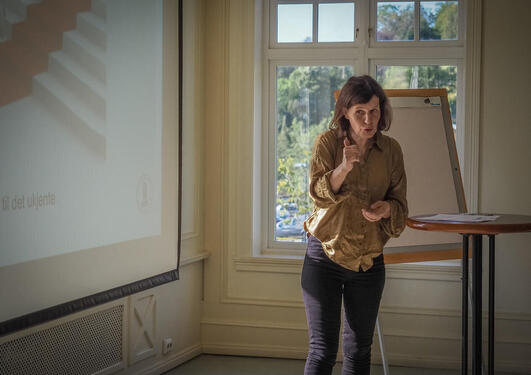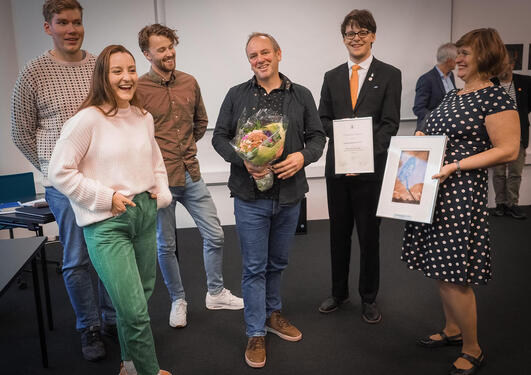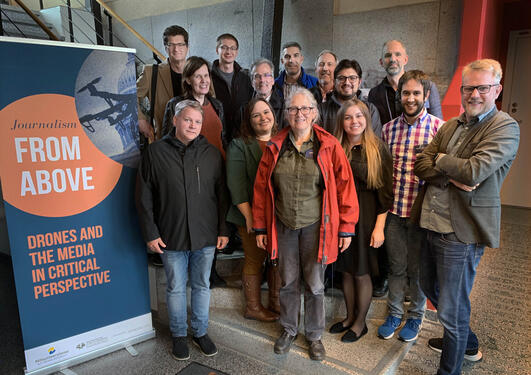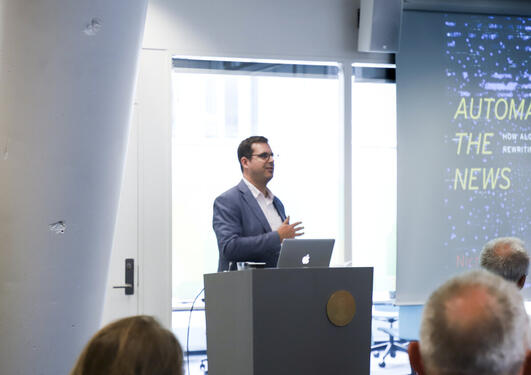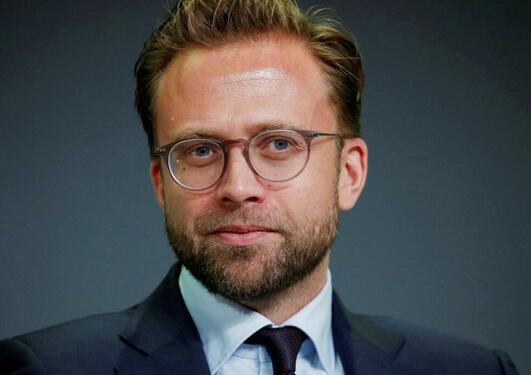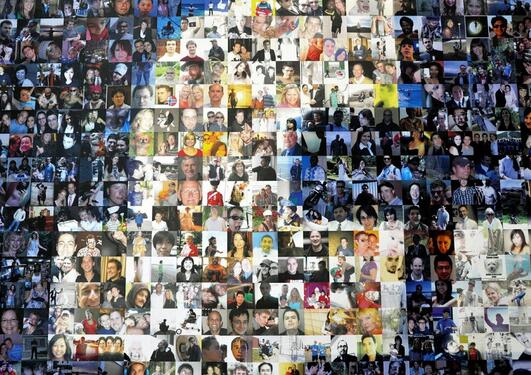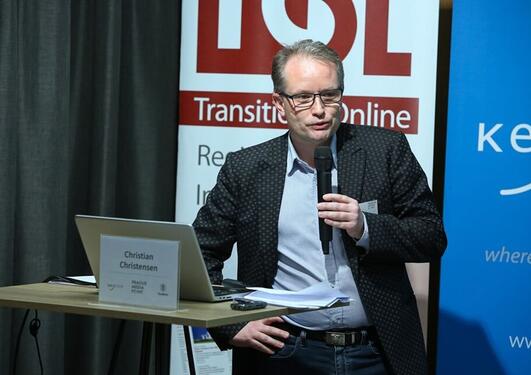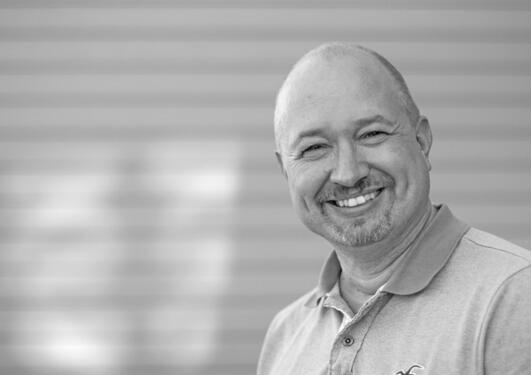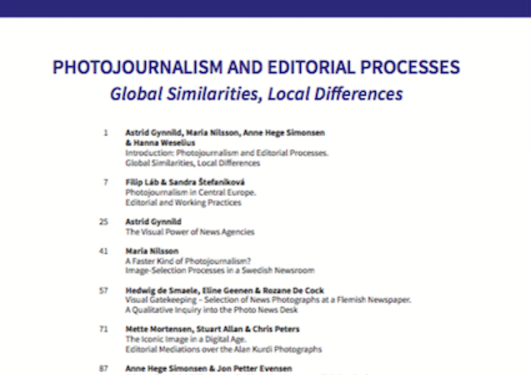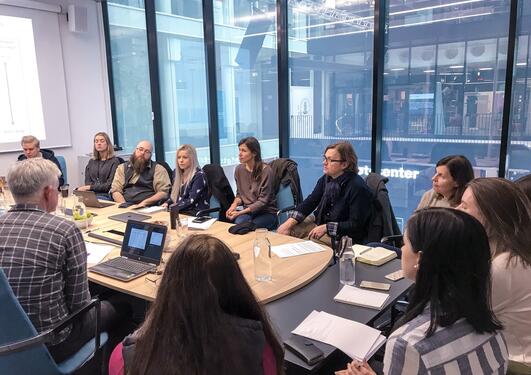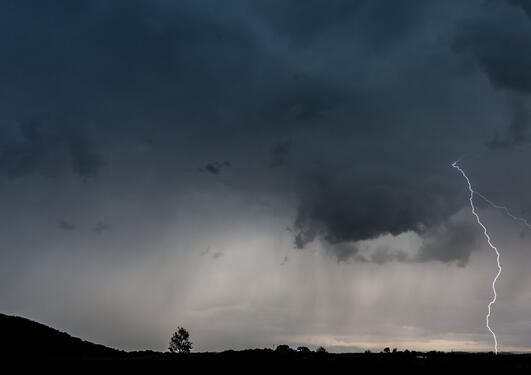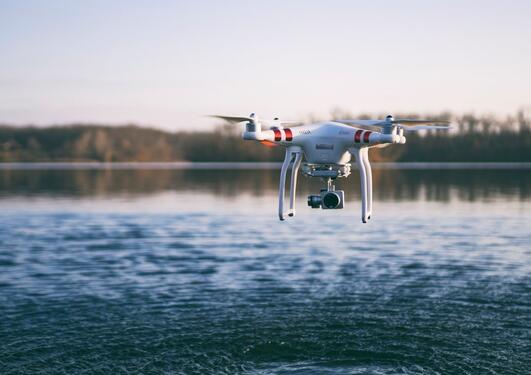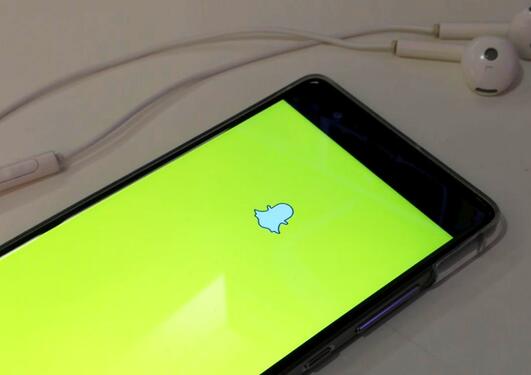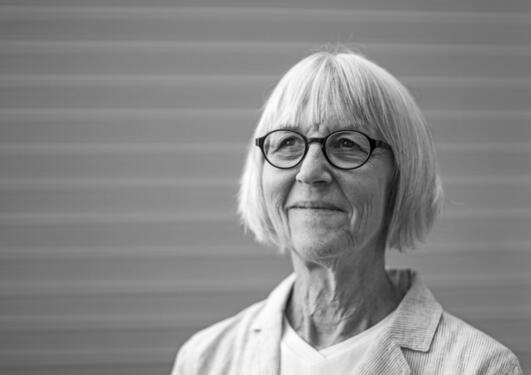Nyhetsarkiv for ViSmedia
In June 2019, Astrid Gynnild was awarded the status Excellent Teaching Practitioner (ETP) as one of the first professors at the University of Bergen. “In particular, I enjoy involving students in research projects,” Professor Gynnild subsequently explained in her presentation to the Faculty of Social Sciences.
Professor Lars Nyre was recently presented with an award for creating the best learning environment in 2019.
Drone journalism is moving the limits for airborne news coverage. In September 2019 researchers from three continents met for a two-day workshop, Journalism from above, in Sweden to discuss critical aspects of this disruptive technology.
Fake news, and specifically deepfakes, might turn out to be a crucial challenge during the 2020 US elections. Deepfake technologies can be used to make video and audio clips of individuals doing and saying things they never did or said. In a paper in the SSRN eLibrary, Vismedia researchers Deborah G. Johnson and Nicholas Diakopoulos address the ethical implications of deepfakes in an election... Les mer
ViSmedia researcher Deborah G. Johnson gave a keynote address at the 5th International Conference on the History and Philosophy of Computing at the University of Bergamo (October 29, 2019).
Digitalisation raises serious questions about national security and citizens’ autonomy in digitalised democracies, PhD-student Anja Salzmann points out.
A critical article on Facebook’s extensive collection of data prompted hot debates in social media. The article was published in the magazine Morgenbladet, and written by PhD-student Anja Salzmann.
In Norway, social media is the single most important news source for people aged 9-18. As users increasingly rely on social media for their news updates, the power of news media is challenged in new ways. ViSmedia researcher Thomas Wold points out that news sharing in social media can be actively used to influence what news stories that should be publicly discussed.
"Mobile communications play a major role in demonstrations, especially in authoritarian regimes, when messages about protests are spread", Turo Uskali says.
Which dilemmas do we most often run into when researching people on the Internet, and how can these issues be solved? This is one among many questions you can seek answers to at Media City Bergen this coming Thursday.
Researcher Turo Uskali spoke at Arctic Drone Lab seminar in Finland earlier this January.
31 January and 1 February two events on photojournalistic research will take place in Stockholm. ViSmedia will be represented by researcher Astrid Gynnild.
As a scientist, you face ethical dilemmas when studying people on the internet. What can we do to make sure we make the right decisions? This is a question professor Dag Elgesem attempted to answer.
In the era of fake news; could an online weather report be a solution? This is one of Nicholas Diakopoulos' predictions for journalism in 2018.
Camera drones provide unique visual perspectives and add new dimensions to storytelling and accountability in journalism. Simultaneously, the rapidly expanding uses of drones as advanced sensor platforms raise new legislative, ethical and transparency issues.
"Snap Map can be fun between friends, but it can also be a too that can be misused by the "wrong" people", journalism student Maren Myrseth says.
Just before she is coming to Norway in March, professor Deborah G. Johnson was selected for yet another prestigous research award. In June 2018, she will get the Covey Award from the International Association for Computing and Philosophy’s Executive Board.
Sider
- september 2021 (12)
- august 2021 (87)
- juli 2021 (33)
- juni 2021 (1)
- desember 2016 (1)
